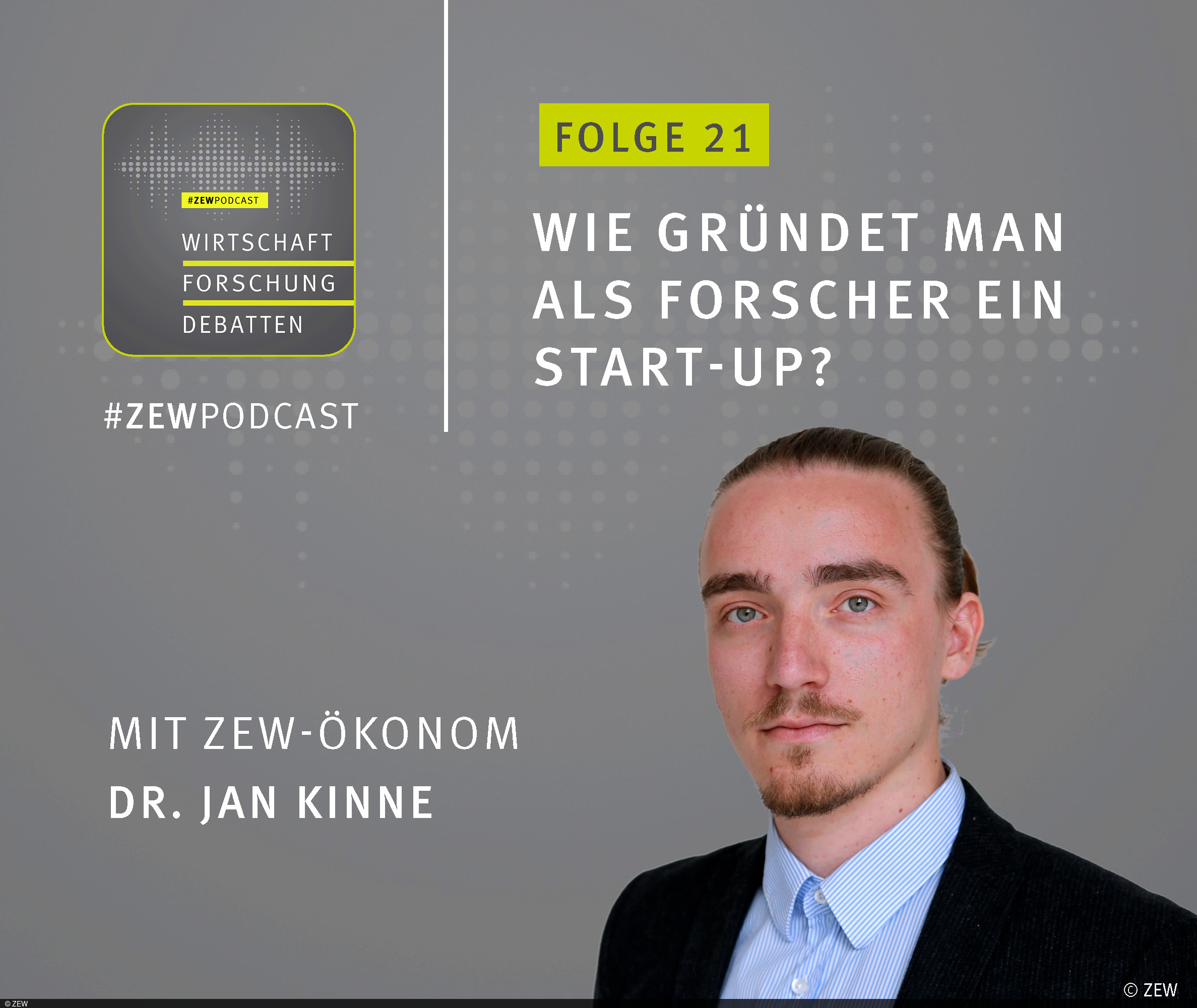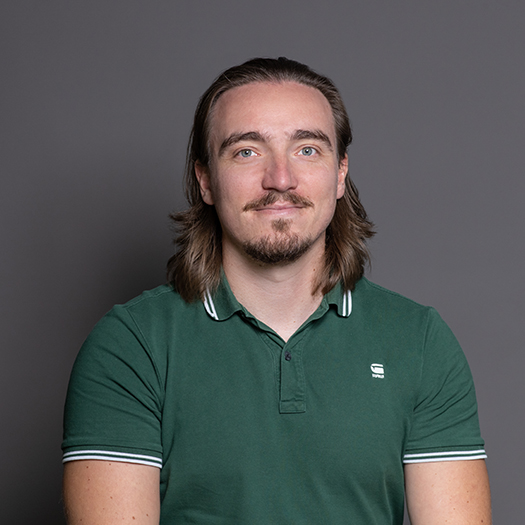From Researcher to Founder of Istari.ai
#ZEWPodcastZEW Economist Dr. Jan Kinne in the #ZEWPodcast
ZEW researcher Jan Kinne started Istari.ai together with David Lenz while doing his doctorate. In the 21st episode of the #ZEWPodcast ‘Wirtschaft · Forschung · Debatten’/‘Economy · Research · Debates’, the economist looks back on the time when the company was founded and explains what added value his company Istari.ai offers for science, politics and companies.
The internet is full of information about companies, but only a small fraction of it can be found in traditional business databases, Kinne says in the podcast. His start-up company, founded in 2019, has come up with a solution: istari.ai scans company websites, recognises relevant information and makes the data available in real time. “For example, we have an innovation agent that is designed to evaluate a company’s website, social media and news articles to determine whether the company is innovative,” explains the economist. Companies can then use this knowledge to network. “Our main target group is currently what we call ‘professional services and consulting’. This includes all analysts and consultants who carry out market or sector analyses and also rely on up-to-date information, for example on sustainability and artificial intelligence,” says Kinne.
Istari.ai’s data is also relevant for policymakers. For instance, istari.ai was able to show the impact that COVID-related measures had on companies in spring 2020. “That was the first time that someone was actually willing to pay us for our work at istari.ai,” says Kinne.
“Things have to be developed quickly and in a market-oriented way”
For Kinne, his job as a researcher and his job as CEO of a start-up are two completely different activities. “What I miss a bit in my role as an entrepreneur is the opportunity you have as a researcher to work very intensively on a certain topic.” As a founder, on the other hand, you have to work in a very practice-oriented way. “You have to develop things quickly and in a market-oriented manner and sometimes leave your inner perfectionist at the door,” says Kinne, who studied geoinformatics and had to learn the business basics first. “In a small start-up team, you are responsible for everything yourself, from personnel and tax issues to technical matters. I learned more last year than in many years before,” Kinne concludes.


